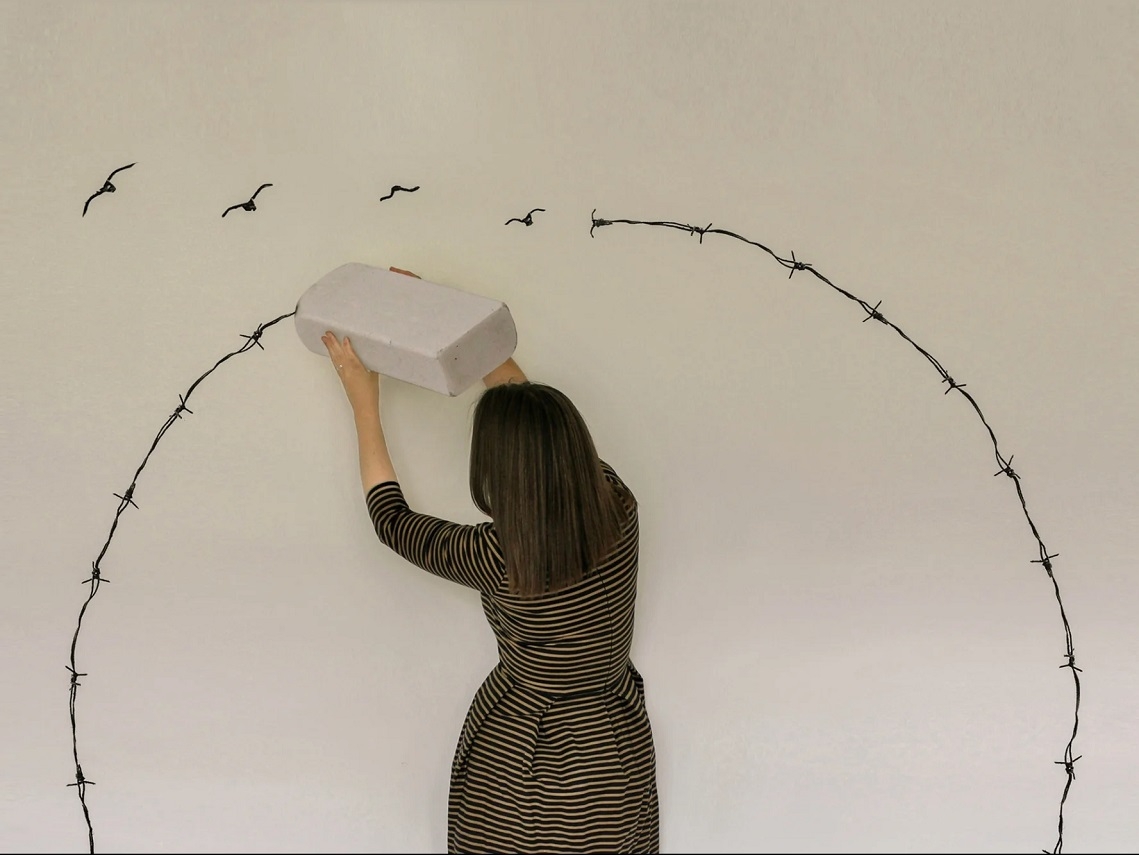‘Change your patterns of behaviour’
| Date :15-Sep-2024 |

■ By RITA AGGARWAL (Consulting Psychologist)
Q. My neighbor, a 40-year-old combat veteran, who has
been experiencing flashbacks, nightmares, and severe
anxiety following her military service. She avoids situations that remindher of the trauma and feels constantly
on edge. She also struggles with feelings of guilt and
hyper vigilance. The problem is that she is staying alone
and has nobody to be there for her the whole time. How
can I help her?
Ans. These are symptoms of post traumatic stress disorder
(PTSD) which is quite common among combat veterans. She
would need to de-stress andwould need help to heal hermind.
She can use any method that she believes in - she could try
relaxation,meditation,mindfulness and /orheartfulness. She
could try journaling and gratitude prayers too. She is alive is
a fact to be grateful for. Let her re-define a role for herself and
a meaning and purpose in life. It helps to have a larger goal
than just you and your life. Sitting within the limited confines
of your own self does not help many times. Of course selfcare is important but not enough.You ought to engage with
life in a bigger and better way and engaging yourself with
happier goals. Combat is always a stressful area to work in. I
am assuming she has left her job – you don’t mention anything about it.
Anonymous
Q. I am a 36- year-old teacher, living with my mother
here in Nagpur. My husband doesn't live here, he is at
Warora for his job. The reason for staying at different
places is not because of the job, but because we're not on
good terms with each other. My husband used to abuse
meverballywhenwe lived together, andmyin-laws have
always been very interfering. My adolescent son stays
with me, since he too doesn't get along with his father
well. But now as he is growing up, I do realise that he
may feel the void of a father figure in his life. He has
started lying to me about things and I am left helpless
at times. I feel like I am doing everything, trying very
hard, but am getting nothing in return. Please help me.
Ans. This is a sensitive and hence critical age for the adolescent and for the parent as well. Please have patience and try
to be empathetic to him. Talk to him with respect and an
eagerness tounderstandhimrather than scoldhim and downgrade him.You might change your style of mothering as the
currentmethods are clearly notworking. A parent’s handling
is as important as the problems of the child. He has his own
set of issues to handle, an abusive and absent father, his studies, his peers and school problems and a lonely mother. Try and introspect your own set of problems and whether you
handle them well enough or keep unhappy, and irritated. Try
and understand where you are going wrong with him and
change your behavior. Come for a few sessions along with
your son and we can help you assess and make amends. It is
never too late and specifically if the first signs of lying have
been noticed, you ought to start early to prevent it. The earlier the better. Delaying it will make the habits stable.

RITA AGGARWAL (Consulting Psychologist)
■ Note: Readers are requested to write short queries in approx 150
to 200 words. Furthermore, do not use abbreviations in career
queries to avoid confusion. The columnist can be reached at
[email protected] or visit www.manodaya.org for
further details.